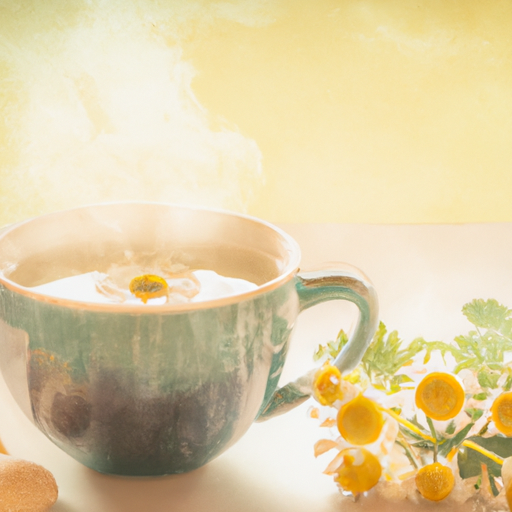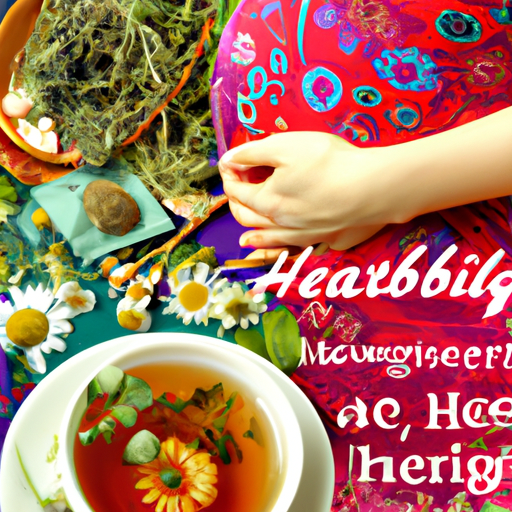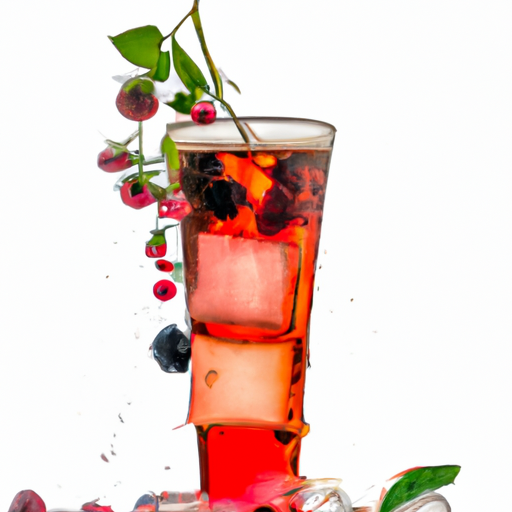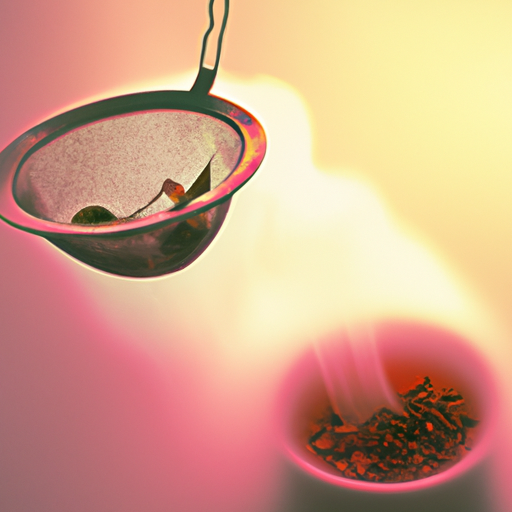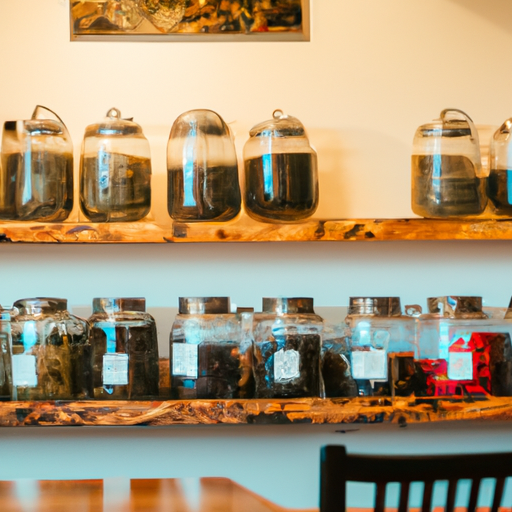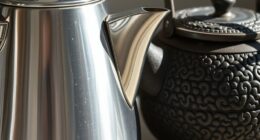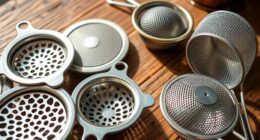When recuperating from tonsil surgery, it is important to seek out natural remedies that can help alleviate discomfort and encourage healing. Incorporating herbal teas into your recovery regimen can provide a soothing and advantageous boost.
In this article, I will explore the healing properties of various herbal teas and their potential benefits for tonsil surgery recovery.
First and foremost, chamomile tea is known for its calming and anti-inflammatory properties, which can help reduce pain and swelling in the throat.
Peppermint tea, on the other hand, can provide a cooling sensation and help alleviate any discomfort or irritation.
Ginger tea is another excellent option, as it has anti-inflammatory and analgesic properties that can aid in pain relief.
Licorice root tea, with its soothing and anti-inflammatory effects, can also help soothe a sore throat and promote healing.
Additionally, marshmallow root tea is known for its mucilaginous properties, which can help coat and protect the throat, while echinacea tea can boost the immune system and aid in the healing process.
Lastly, turmeric tea, with its powerful anti-inflammatory properties, can provide relief from pain and support faster recovery.
Incorporating these herbal teas into your post-tonsil surgery recovery plan may offer you a natural and effective way to alleviate discomfort and promote healing.
Key Takeaways
- Chamomile tea is beneficial for tonsil surgery recovery as it has calming and anti-inflammatory properties, reducing pain and swelling in the throat.
- Peppermint tea provides a cooling sensation and acts as a natural analgesic and anti-inflammatory, alleviating discomfort and irritation after tonsil surgery.
- Ginger tea aids in pain relief, aids digestion, and soothes an upset stomach. It also has anti-inflammatory properties that can benefit the recovery process.
- Licorice root tea soothes a sore throat, promotes healing, and has anti-inflammatory properties that can help with tonsil surgery recovery.
Chamomile Tea
Chamomile tea, with its soothing and anti-inflammatory properties, is an excellent choice for aiding in the recovery process after tonsil surgery. It has been used for centuries for its numerous health benefits, including reducing inflammation and promoting relaxation. The anti-inflammatory properties of chamomile can help alleviate discomfort and swelling after tonsil surgery. Additionally, chamomile tea is known for its calming effects, which can help reduce stress and promote a restful sleep, both of which are important for a speedy recovery.
To enjoy the benefits of chamomile tea, you can easily prepare it at home. Start by boiling water and adding a chamomile tea bag or loose chamomile flowers to a cup. Let it steep for about 5 minutes to allow the flavors and properties of the chamomile to infuse into the water. You can sweeten it with honey or lemon, if desired. Sip on this warm and comforting tea throughout the day to help soothe your throat and promote healing.
Moving on to the next herbal tea that can aid in your tonsil surgery recovery, let’s explore the benefits of peppermint tea.
Peppermint Tea
Peppermint tea is a fantastic option for relieving pain and reducing swelling after tonsil surgery. It has natural analgesic and anti-inflammatory properties that can help alleviate discomfort and promote healing.
Additionally, peppermint tea is known for its refreshing scent and taste, which can freshen breath and provide relief for congested sinuses.
Overall, incorporating peppermint tea into your recovery routine can be a soothing and beneficial choice.
Relieves Pain and Reduces Swelling
Echinacea tea soothes discomfort and decreases inflammation, aiding in a smoother tonsil surgery recovery. This herbal tea is one of the best natural remedies for post-surgery inflammation. It can be a great alternative pain management option, especially for those who prefer to avoid strong medications.
-
Boosts immune system: Echinacea tea contains compounds that stimulate the immune system, helping the body fight off infections and promoting faster healing.
-
Reduces pain: The anti-inflammatory properties of echinacea help reduce pain and swelling in the throat, making it easier to eat and drink during the recovery period.
-
Relieves soreness: Drinking echinacea tea can provide relief from the soreness and discomfort caused by tonsil surgery.
By incorporating echinacea tea into your recovery routine, you can experience the benefits of this herbal remedy. It also freshens breath and clears sinuses, which will be discussed in the next section.
Freshens Breath and Clears Sinuses
If you’re looking for a way to freshen your breath and clear your sinuses, you might want to try sipping on some minty herbal concoctions. Herbal teas not only provide a soothing and refreshing taste, but they also offer several benefits for your oral and respiratory health.
Mint, in particular, is known for its ability to freshen breath and alleviate sinus congestion. It contains natural compounds that can help clear nasal passages and reduce inflammation, making it easier to breathe. Additionally, herbal teas are often rich in antioxidants and other beneficial compounds that can support overall respiratory health.
So, incorporating herbal tea into your post-tonsil surgery recovery routine can not only provide relief from pain and swelling but also freshen your breath and clear your sinuses.
Speaking of herbal teas, let’s move on to the next one – ginger tea.
Ginger Tea
To speed up your tonsil surgery recovery, you should try sipping on some soothing ginger tea. Ginger tea has numerous benefits that can help alleviate some of the discomfort and promote healing. Ginger contains anti-inflammatory properties, which can reduce swelling and pain in your throat after surgery. It can also help with digestion and soothe an upset stomach, which can be common after anesthesia.
To make ginger tea, simply peel and slice a small piece of fresh ginger root and place it in a cup of boiling water. Let it steep for about 10 minutes, and then strain the liquid. You can add a squeeze of lemon or a teaspoon of honey to enhance the taste.
Drinking ginger tea can provide relief and comfort during your recovery period. It’s important to note that while ginger tea can be beneficial, it shouldn’t replace any medications or treatments prescribed by your doctor.
As we move on to the next topic, licorice root tea, you’ll discover another herbal tea that can aid in your tonsil surgery recovery.
Licorice Root Tea
Indulge yourself in the soothing effects of licorice root, letting its warm and comforting embrace heal you from within. Licorice root tea is a popular herbal remedy known for its numerous health benefits. Here are five reasons why you should give it a try during your tonsil surgery recovery:
- Licorice root has anti-inflammatory properties that can help reduce swelling and pain in the throat.
- It’s been used for centuries to soothe and heal respiratory conditions, making it ideal for easing any discomfort caused by the surgery.
- Licorice root tea can also provide relief from coughing and throat irritation, helping you recover more comfortably.
- This herbal tea contains compounds that promote healthy digestion, which can be especially beneficial if you’re experiencing any digestive issues after the surgery.
- Licorice root tea has a naturally sweet taste, making it a delicious and enjoyable way to stay hydrated during your recovery.
While licorice root tea offers many benefits, it’s important to be aware of potential side effects. Excessive consumption or prolonged use of licorice root may lead to high blood pressure, low potassium levels, or hormonal imbalances. It’s always best to consult with your healthcare provider before incorporating any new herbal remedies into your routine.
Transitioning into the next section about marshmallow root tea, let’s explore another herbal tea that can aid in your tonsil surgery recovery.
Marshmallow Root Tea
Get ready to experience the soothing and healing power of marshmallow root tea, a delicious remedy that can help alleviate discomfort and promote a smooth healing process after your tonsil procedure. Marshmallow root is known for its numerous benefits and has been used as a natural remedy for centuries.
One of the key benefits of marshmallow root tea is its ability to reduce inflammation. The anti-inflammatory properties of this herbal tea can help soothe the soreness and swelling in your throat, providing much-needed relief. Additionally, marshmallow root tea is also known for its soothing effects on the mucous membranes. It can help coat your throat and provide a protective layer, reducing irritation and allowing for faster healing.
When it comes to tonsil surgery recovery, it’s important to explore alternative herbal remedies like marshmallow root tea. These remedies can complement traditional pain medications and promote a holistic healing process. As with any herbal remedy, it’s always a good idea to consult with your healthcare provider before incorporating marshmallow root tea into your recovery routine.
Transitioning to the next section, another herbal tea that can aid in your tonsil surgery recovery is echinacea tea.
Echinacea Tea
Transitioning to the next section, let’s explore how incorporating echinacea tea into your post-tonsil procedure routine can provide an immune-boosting effect, helping your body fight off potential infections and aiding in a faster healing process.
Imagine a scenario where a patient, recovering from tonsil surgery, sips on a warm cup of echinacea tea and feels a surge of vitality as their immune system gets a much-needed boost.
Echinacea, a flowering plant native to North America, has long been valued for its medicinal properties. Studies have shown that echinacea can enhance overall immune health, thanks to its active compounds like polysaccharides and flavonoids. These compounds work together to stimulate the production of white blood cells, which play a crucial role in fighting off infections.
To make a soothing echinacea tea blend for cold and flu season, start by steeping 1-2 teaspoons of dried echinacea root or leaves in a cup of hot water for 5-10 minutes. You can add a touch of honey or lemon to enhance the flavor if desired. Sip on this herbal concoction a few times a day to reap its immune-boosting benefits.
As we move forward to discussing turmeric tea, let’s explore another herbal remedy that can aid in your tonsil surgery recovery.
Turmeric Tea
Moving onto turmeric tea, let’s discover how this vibrant spice can enhance your post-tonsil procedure routine with its incredible healing properties. Turmeric tea is known for its numerous health benefits, making it an excellent choice for aiding in tonsil surgery recovery. The active ingredient in turmeric, called curcumin, has powerful anti-inflammatory and antioxidant properties. These properties can help reduce post-operative swelling and promote faster healing.
Drinking turmeric tea regularly can also help alleviate pain and discomfort associated with tonsil surgery. Curcumin has been shown to have analgesic properties, providing natural pain relief. This can be particularly beneficial during the recovery period when pain medication may be limited.
To make turmeric tea, start by boiling water and adding one teaspoon of ground turmeric. Allow it to simmer for about 10 minutes to extract the beneficial compounds. You can then strain the tea and add a squeeze of lemon juice or a dash of honey to enhance the flavor.
Incorporating turmeric tea into your post-tonsil surgery routine can provide numerous benefits for a faster and more comfortable recovery. However, it’s always important to consult with your healthcare provider before introducing any new herbal remedies into your diet.
Frequently Asked Questions
Can I drink herbal tea immediately after tonsil surgery?
After tonsil surgery, I can drink herbal tea for a quicker recovery. Herbal tea has soothing properties that can reduce pain and inflammation, promote healing, and boost the immune system.
How often should I drink herbal tea during my tonsil surgery recovery?
During my tonsil surgery recovery, I should drink herbal tea from recommended brands. It’s best to drink it throughout the day to stay hydrated and promote healing.
Are there any potential side effects or interactions of herbal tea with other medications I may be taking post-surgery?
Potential risks and precautions should be considered when combining herbal tea with post-surgery medications. It’s crucial to consult with your healthcare provider to ensure there are no interactions that could impact your recovery.
Can herbal tea help reduce pain and inflammation after tonsil surgery?
Herbal tea can help reduce pain and inflammation after tonsil surgery. It has been shown to provide benefits similar to pain medication. However, it is important to consult with a healthcare professional for individualized advice.
Is it safe to combine different types of herbal tea for enhanced recovery benefits?
Combining different types of herbal tea can be safe and beneficial for overall health and wellness. Exploring various flavors and benefits of herbal tea blends can enhance recovery after tonsil surgery.
Conclusion
So there you have it, folks! After scouring the herbal tea world for the best options for tonsil surgery recovery, we’ve come to the conclusion that chamomile tea, peppermint tea, ginger tea, licorice root tea, marshmallow root tea, echinacea tea, and turmeric tea are all good choices. These teas have various healing properties that can help reduce inflammation, soothe the throat, and boost the immune system. So go ahead and sip away, but remember, this isn’t medical advice, just a satirical take on herbal tea options for tonsil surgery recovery. Cheers!

